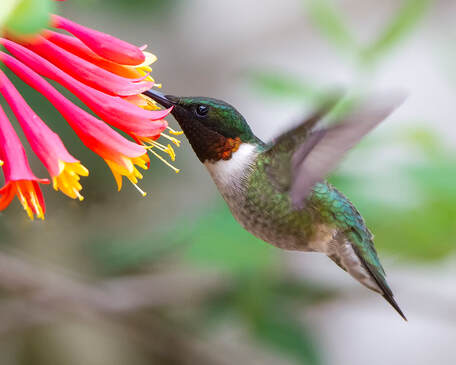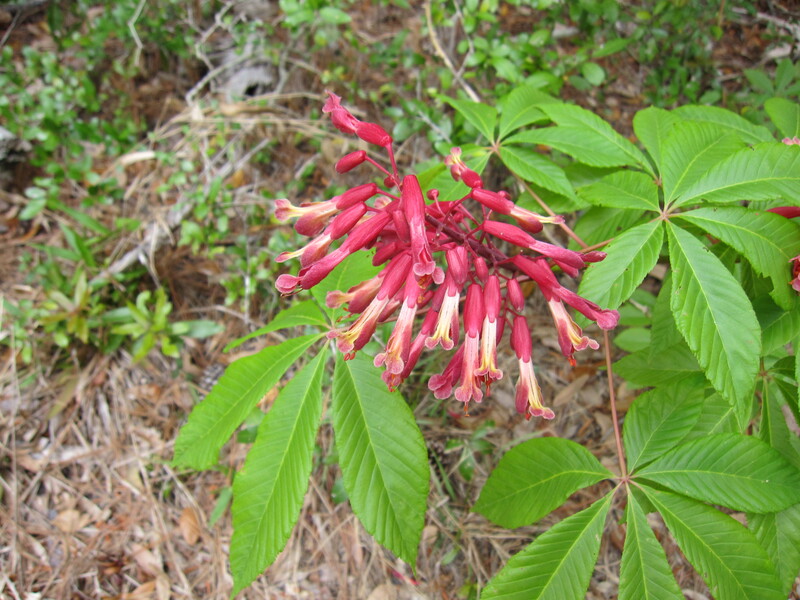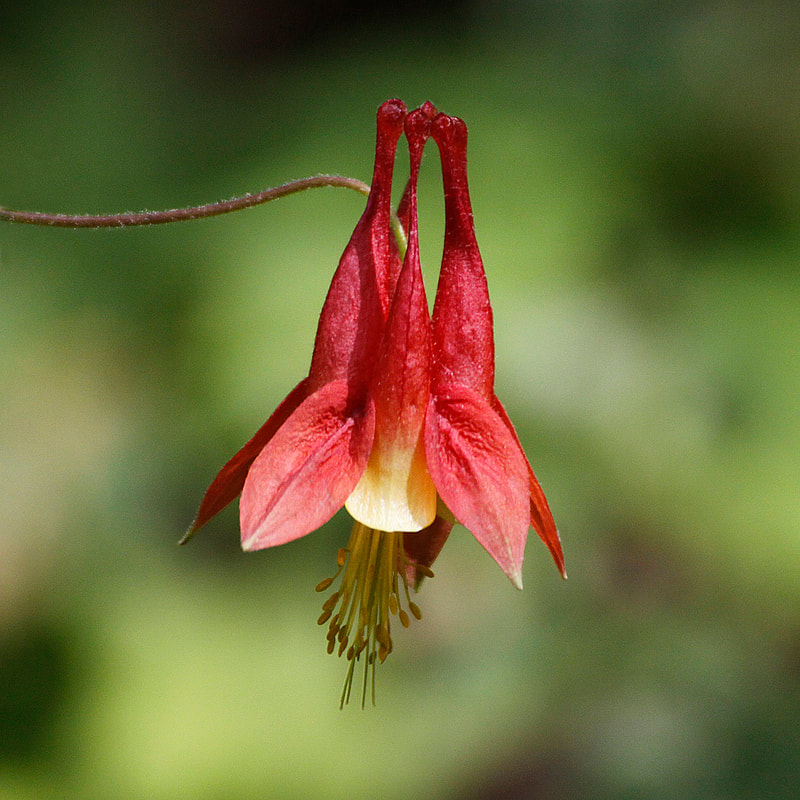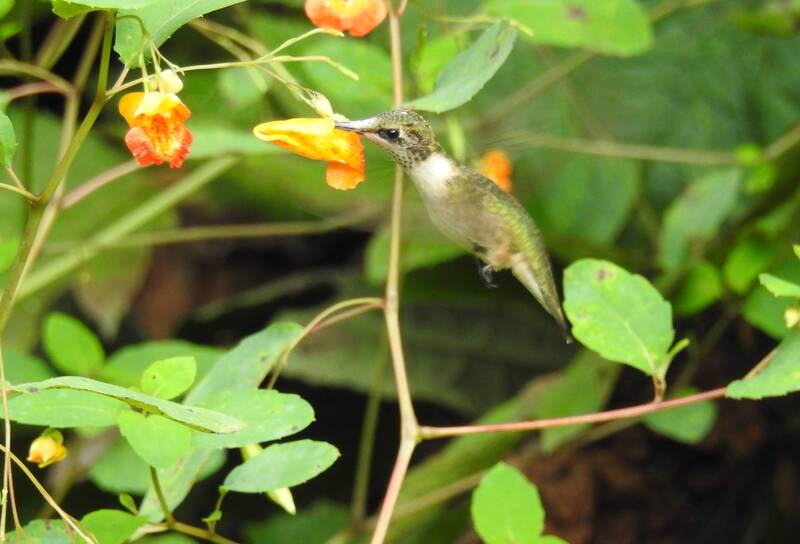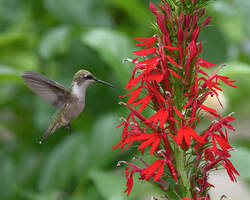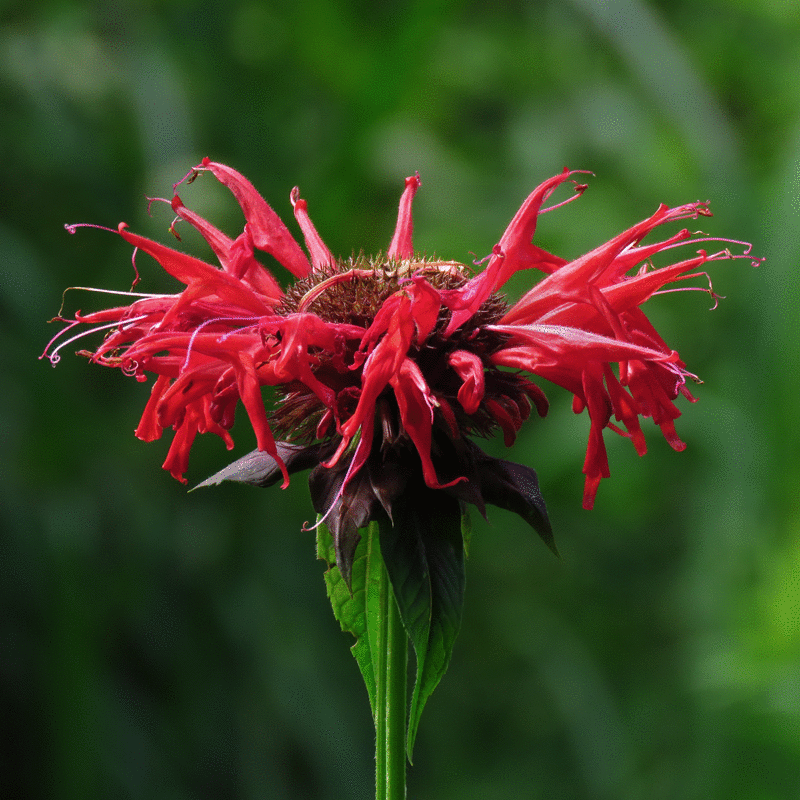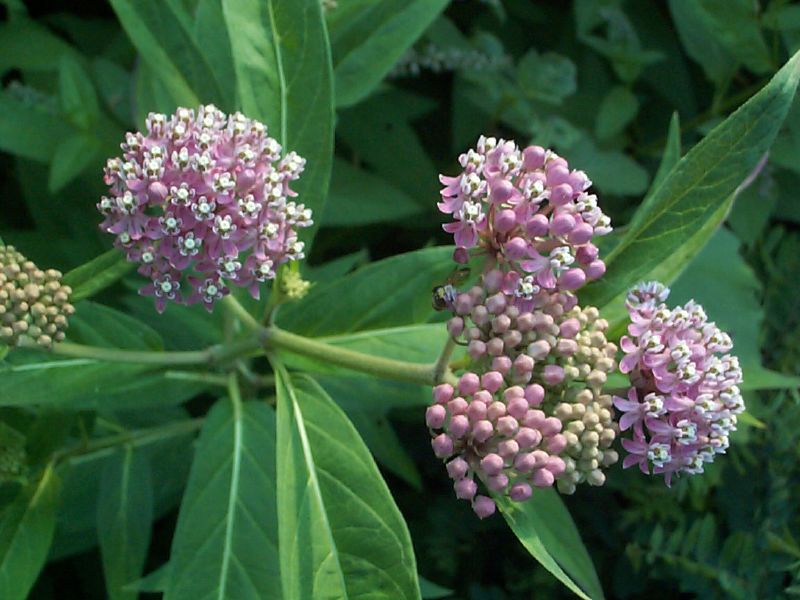Above: Ruby-throated Hummingbird on Indian Pink. Photo courtesy National Audubon.
Ruby-throated Hummingbird
|
For our 2021-2022 focal species, Birds Georgia has chosen the Ruby-throated Hummingbird. Georgians love these birds passionately and many people first came to notice birds through these tiny flyers. Weighing only three to four grams, hummingbirds dazzle us with their speed and agility. Their ability to double their body mass prior to making a mind-blowing nonstop journey across the Gulf of Mexico twice each year never fails to inspire awe. They are faithful to and fierce defenders of their territories, never shying away from chasing others from their favorite feeder or jewelweed patch. Depending on the moment, they can be subdued and camouflaged or literally the most striking shades of green and red. Simply put, Ruby-throated Hummingbirds are amazing. They excite bird lovers from novice to pro and from home bodies to hemispheric travelers. They can be enjoyed endlessly at a feeder or in the remote wilderness areas of our state. They inspire joy, happiness, and amazement.
|
While it is true that Ruby-throated Hummingbirds are not threatened or overly imperiled, these tiny birds inspire many people, provide great opportunities for Birds Georgia to highlight many of our conservation goals, and offer many engagement and education opportunities.
Threats to hummingbirds
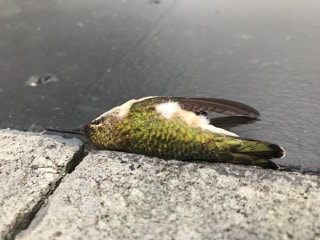 A Ruby-throated Hummingbird killed in a building collision. Photo by Adam Betuel.
A Ruby-throated Hummingbird killed in a building collision. Photo by Adam Betuel.
Ruby-throated Hummingbirds face a variety of different man-made and natural threats across their range:
- Building collisions: Since 2015, Birds Georgia began monitoring bird-building collisions across metro Atlanta through Project Safe Flight. Ruby-throated Hummingbirds are by far our most frequently encountered victim.
- Habitat loss and degradation: Loss of suitable habitat and the proliferation of invasive plant species, such as English Ivy and Chinese privet, can have negative impacts on hummingbirds. Birds Georgia's habitat restoration program has had tremendous success restoring bird habitat by removing invasive plant species and replacing them with native plants that provide quality food for birds. Our Wildlife Sanctuary Program is building a network of certified wildlife habitats across the state.
- Pesticides and insecticides: In addition to nectar, hummingbirds rely on a variety of insects, from spiders to aphids, to provide much-needed protein in their diet. Pesticides and insecticides not only kill this essential food source for hummingbirds, but they can also poison our hummingbirds. Learn more about best practices for managing for wildlife here.
- Outdoor Cats: As much as we love our pets, outdoor cats wreak havoc on bird populations, and hummingbirds are particularly susceptible since they repeatedly feed at the same food source, making it is easy for cats to lie in wait. Cats kill more than 2.4 BILLION birds each year and are one of the biggest threats birds face. Keeping cats indoors is better for cats and better for the birds. Learn more tips on the American Bird Conservancy's Cats Indoors website.
Plants for Hummingbirds
You can help Ruby-throated Hummingbirds by planting native, nectar producing plants in your landscape. Below you will find a few native plants that will attract hummingbirds to your yard.
Hover over or click on each picture for the plant name.
Hover over or click on each picture for the plant name.
help us do more for hummingbirds
Donations to Birds Georgia support our conservation, education, and community engagement programs across the state. Please consider a making a gift today to help us build places where birds and people thrive.

